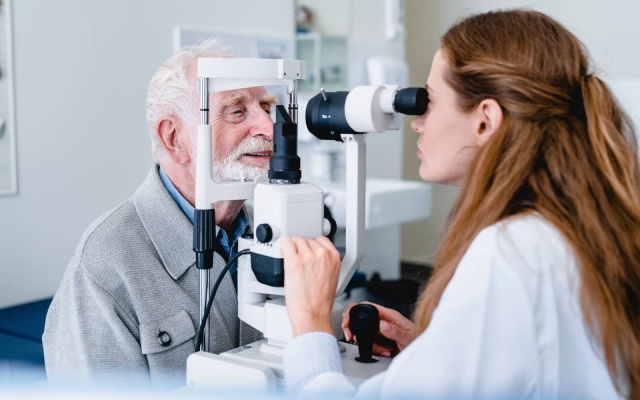When it comes to eye health, 2 of the most concerning conditions are glaucoma and macular degeneration. Both can lead to severe vision loss if left untreated, and understanding the genetic predisposition is crucial for early detection and prevention. At One Vision Eyecare, we can help you explore the genetic factors, the likelihood of inheriting these conditions, and how race impacts the prevalence of these diseases.
Genetic Factors of Glaucoma
Glaucoma is a group of eye conditions that damage the optic nerve, often linked to high pressure in the eye. While environmental factors like age and high blood pressure contribute to its development, genetics also play a significant role.
Genes Associated with Glaucoma
Several genes have been linked to glaucoma, with the most well-known being MYOC, OPTN, and WDR36. Mutations in the MYOC gene are particularly associated with primary open-angle glaucoma, the most common form of the disease. Another important gene is TBK1, which has been implicated in normal-tension glaucoma, where optic nerve damage occurs without high eye pressure.
Inheritance & Family Risk
If you have a close relative with glaucoma, your risk of developing the condition is 4–9 times higher than someone without a family history. This makes regular eye check-ups essential for individuals with a family history of glaucoma.
Genetic Factors of Macular Degeneration
Macular degeneration, particularly age-related macular degeneration (AMD), is a leading cause of vision loss among older adults. It affects the macula, the central part of the retina responsible for clear vision.
Genes Associated with Macular Degeneration
The most significant genetic contributors to AMD are variations in the CFH gene and ARMS2 gene. The CFH gene affects the immune system’s response to inflammation, which is a critical factor in AMD development. Additionally, variants in the C3 and HTRA1 genes have also been linked to a higher risk of AMD.
Inheritance & Family Risk
Having a family member with AMD increases your risk by about 50%. This strong genetic link emphasizes the importance of monitoring vision health, especially in families with a history of the disease.

Race & Eye Disease Prevalence
Race and ethnicity play significant roles in the prevalence of glaucoma and macular degeneration.
Glaucoma & Race
Those of African-Caribbean descent are at a significantly higher risk of developing glaucoma than Caucasians. Studies show that they are about 6–8 times more likely to develop the disease. Furthermore, glaucoma tends to develop earlier and progress more rapidly in African-Caribbeans, making early detection even more critical in this population.
Macular Degeneration & Race
AMD is more common in Caucasians, especially those of Northern European descent. The prevalence is much lower among African-Caribbean and Hispanic populations. Caucasians also tend to develop AMD earlier and more severely, which may be due to both genetic factors and environmental influences such as UV exposure.
Understand Your Risk
Understanding the genetic predisposition to glaucoma and macular degeneration is essential for early detection and prevention. Family history, race, and specific genetic markers all play crucial roles in determining an individual’s risk. Regular eye exams, especially for those at higher risk, can lead to early intervention and better management of these potentially vision-threatening conditions.
Contact the One Vision Eyecare team today to book your next appointment.




